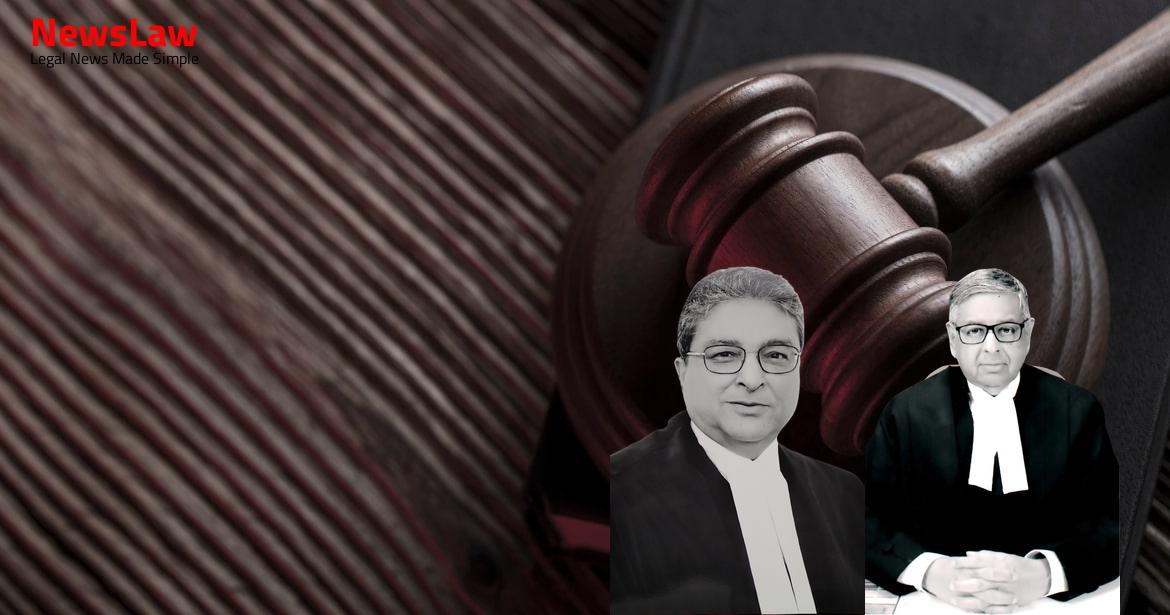Explore the detailed legal analysis by the court regarding arbitrators’ fee structure in ad hoc arbitrations. The court’s interpretation of provisions such as the Fourth Schedule and Section 31(8) sheds light on the complexities surrounding arbitrators’ fees. Understanding the significance of party autonomy and the application of the law in determining fees is vital for stakeholders in the arbitration process.
Facts
- RVNL filed a miscellaneous application seeking a determination on whether a fee can be charged separately for the claim and counter-claim by the arbitral tribunal.
- The sole arbitrator in the case raised separate invoices for the payment of fee for claims and counter-claims and fixed a separate fee for each.
- The arbitral tribunal held that claims and counter-claims have to be treated separately based on the proviso to Section 38(1) of the Arbitration Act and Order VIII Rule 6A of the Civil Procedure Code 1908.
- The Fourth Schedule to the Arbitration and Conciliation Act 1996 recommends the fee for each arbitrator as Rs 30 lakhs when the amount in dispute exceeds Rs 20 crores.
- The procedural order dated 13 July 2019 fixed a separate fee for the claim and counter-claim, totaling to Rs 47,78,135 per arbitrator.
- The arbitral tribunal also indicated a reading fee or conference fee may be charged at a later stage.
- Afcons-Shetty opposed the application related to the fee, while RVNL sought modification of the procedural order.
- Both parties nominated their arbitrators during the process.
- The tribunal held that the fee was set based on the amount being paid in arbitrations of such nature.
- The tribunal rejected NTPC’s position that the claim and counter-claim have to be cumulated for the sum in dispute under the Fourth Schedule.
- The interpretation of the fee structure was supported by the Law Commission Report and the DIAC Rules Model Fee.
Also Read: Balancing Power and Transparency: Electoral Bonds Struck Down, Disclosure Mandated
Issue
- The controversy before this Court is in relation to what the ceiling applies to.
- The sum in dispute in the Fourth Schedule of the Arbitration Act is considered separately for the claim amount in dispute in the claim and counter-claim.
- Arbitrators’ fee will be calculated separately for the claim and counter-claim, and the ceiling on the fee will also be applicable separately to both.
- The issue revolves around the interpretation of the sixth entry of the Fourth Schedule.
- Competing interpretations of the Model Fee arise when the sum in dispute is above Rs 20,00,00,000.
- Agreement that for an arbitration with the sum in dispute at Rs 20,00,00,000, the fee would be Rs 19,87,500, known as the base amount.
- Any increase in the sum in dispute over Rs 20,00,00,000 will have 0.5% of the amount above Rs 20,00,00,000 added to the fee as the variable amount.
- Ceiling on the fee is Rs 30,00,000.
Also Read: Recall of Resolution Plan Approval: Legal Analysis
Arguments
- If parties have agreed to a fee schedule, the agreed schedule will apply
- When parties are unable to agree to a fee schedule, the Arbitration Act does not provide guidance on what to do in such circumstances
- Justice Dipak Misra, as the learned Chief Justice, analyzed the provisions of Order VIII in a case.
- In the case of Thomas Mathew v. KLDC Ltd., it was held that a counter-claim is treated as an independent suit.
- According to the decision, the period of limitation for a counter-claim is three years from the date the cause of action accrued.
Analysis
- Mr Ahmadi urged the court to issue directives for governing ad hoc arbitrations in India.
- The court upheld the observations of the Single Judge of the Delhi High Court in Gammon (supra) regarding the apportioning of costs between parties.
- The principle of party autonomy plays a substantial role in determining arbitrators’ fees.
- Most international arbitral institutions give tribunals discretion to allocate costs unless parties have an agreement on apportionment.
- The ‘loser pays’ principle is common for awarding costs.
- The Court acknowledged increased complaints against disproportionately high fees charged by arbitrators.
- The Law Commission recommended the introduction of the Fourth Schedule to address the issue of exorbitant fees charged by arbitrators.
- The principle of party autonomy and the doctrine of prohibition of in rem suam decisions are crucial in determining arbitrators’ fees.
- The Law Commission proposed a model fee schedule based on the one used by the DIAC to rationalize arbitrators’ fees.
- The Arbitration Amendment Act aimed to regulate arbitrators’ fees in ad hoc arbitrations.
- Section 31(8) read with 31A of the Arbitration Act govern the determination of fees for arbitrators.
- The arbitral institution determines the fees of the arbitral tribunal and the payment manner, subject to rates in the Fourth Schedule.
- Costs defined under Explanation to Section 31A(1) include fees and expenses of arbitrators.
- Separate amounts can be fixed for deposit towards claims and counter-claims under the proviso to Section 38(1).
- Fees of arbitrators are part of costs fixed by the arbitral tribunal under Section 31(8).
- Phrase ‘sum in dispute’ in the Fourth Schedule to be interpreted in context.
- English version of Arbitration Act is authoritative per Article 348(1)(b)(ii) of the Constitution.
- Arbitral tribunal can direct parties to make deposits for costs under Section 38(1).
- Arbitrators have right to remuneration as part of reasonable costs under Section 31A(1) Explanation.
- Suggested guidelines for arbitration include fixed arbitrator fees barring extraordinary circumstances.
- Arbitrators can request fee increases for undue delays in proceedings.
- The Fourth Schedule is not applicable to international commercial arbitration.
- ONGC had indicated willingness to pay the fee as per Schedule following the suggestion of the arbitral tribunal.
- ONGC cannot now use the arbitration agreement to pay a lesser fee.
Decision
- The fee payable to each individual arbitrator has a ceiling of Rs 30,00,000.
- This ceiling is not applicable to the arbitral tribunal as a whole if it consists of three or more arbitrators.
- A sole arbitrator shall be paid 25 per cent over and above the maximum fee amount as per the Note to the Fourth Schedule.
- In a specific Arbitration Petition (Civil) No 5 of 2022, a fee schedule was already prescribed in the LSTK contract, but deemed unrealistic during a meeting. ONGC was directed to consider revising the fees.
- Under Article 142 of the Constitution of India, a new arbitral tribunal is to be constituted in accordance with the arbitration agreement, based on the issued directives.
- Excess fees paid to the arbitral tribunal members beyond the Fourth Schedule amount will not be recovered from them.
- A civil appeal is dismissed, a judgment is upheld, another civil appeal is allowed with a judgment set aside, and a miscellaneous application is dismissed in line with the findings.
- Pending applications are disposed of, with Arbitration Petition (C) No 5 of 2022 listed for directions on 21 September 2022.
Case Title: OIL AND NATURAL GAS CORPORATION LTD. Vs. AFCONS GUNANUSA JV (2022 INSC 884)
Case Number: ARBIT.CASE(C) No.-000005 / 2022



